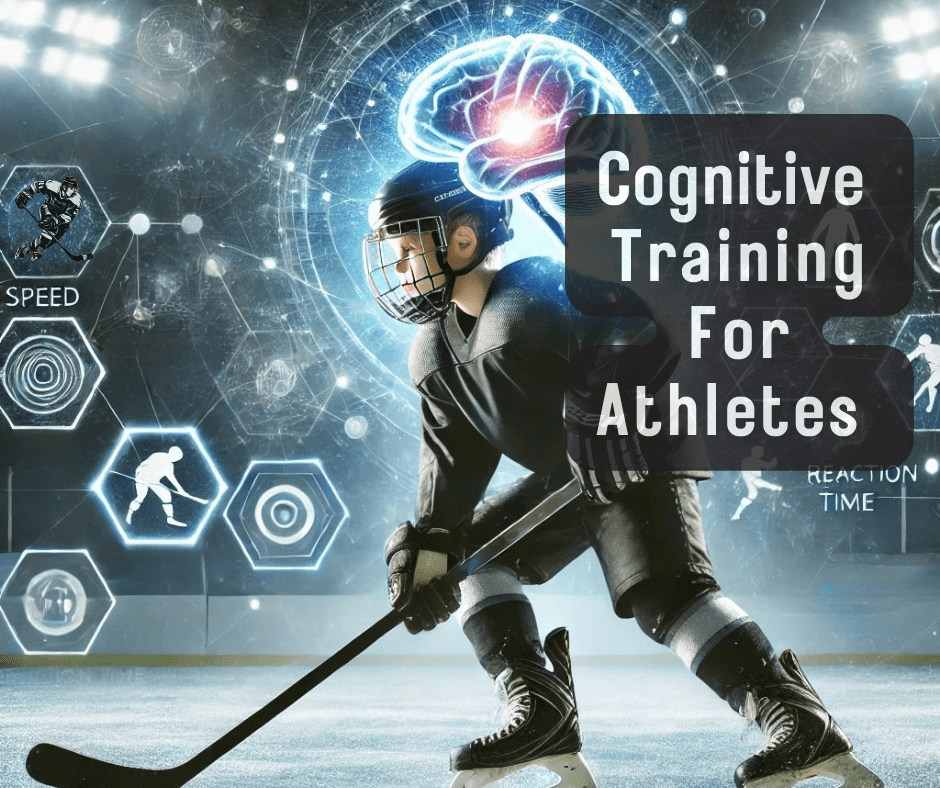This type of Hockey IQ takes multitasking to a new level. The speed, the awareness, the sense of just knowing where to be and execute all these neurological demands within nanoseconds becomes breathtaking and simply beautiful to watch. This is more than an art, it is a science. And, Youth Hockey Cognitive Training is becoming as important in the training arena as the conventional Hockey skills like skating, shooting and puck control.
As the young athletes move up the competition and “letter” ladder, their mental fitness can be the tipping point that may determine their best performance.
This article aims to describe the principles of youth hockey cognitive development, the advantages of brain training, and how mental skills can be used to improve hockey performance.
If you are a parent or a coach looking for ways to enhance hockey IQ for kids or for reaction time drills for hockey players then cognitive training is the missing link in youth hockey.
Athletic and exercise science has found that specialized and focused cognitive development improves sports cognitive abilities such as attention, reaction time and decision making to produce players who can think as fast as they can move!
The Difference between Cognitive Therapy CBT vs. Cognitive Training
Cognitive Behavioral Therapy is quite different in its approach and reason for use. In essence, CBT focuses on helping patients struggling with trauma, anxiety and trauma. It provides the patient with a different lens and framework to break down how they process situations, and events and provide tools to manage overwhelming feelings.
Cognitive Training teaches an athlete how to manage situations before they present themselves. Yes, these situations may be somewhat anxiety producing, but they are prepared by neurological training and by repetition develop neuroplasticity to react quicker and more precisely during an athletic performance.
What is Cognitive Training in Youth Hockey?
Cognitive Training is not just a term that is used without meaning; it is a step by step process of teaching the students the skills that are most likely to help them in their learning processes while playing the game.
In the case of Neuro Hockey Training for youth, the players are made to perform certain tasks (sometimes repetitively) in order to improve their perception, memory, and decision making abilities.
These Hockey brain training exercises can mimic real game situations and demand players to think and respond correctly and quickly.
This form of training goes hand in hand with ice hockey training drills to build the mental toughness together with the physical strength and correct execution.
Cognitive Training has in a sense always been practiced. As a young gymnast, I can recall visualizing my bar routine over and over again and how I exactly wanted to tweak it. I could the bar on my callused hands and the exhilaration (even in my mind) of performing to what I could imagine would be the top of my ability. This was indeed just intuitive. But, enter science….
Formal Cognitive Training these days takes it to a new level. Physicians and psychologists combine the neurosciences with coaching techniques to develop a new level of execution, a new transformation of today’s athletes.
Connor McDavid: The Best Example of the High-Level Cognitive Skills in Practice
Let’s take, for example, Connor McDavid. He is one of the fastest players in the league and, interestingly enough, his strongest asset is his brain.
His capacity to make decisions at an alarmingly high speed while moving at a high rate of speed is a clear illustration of the need for Hockey skill development for kids to focus on the mental aspect as well.
McDavid’s success shows how important it is to combine mental training for ice hockey players with physical training. He consistently outplays his opponents by improving his youth hockey cognitive abilities and thus becomes one of the most valuable players in the NHL.
Implementing Cognitive Training for Young Athletes
Ready to help your child improve hockey IQ for kids? Here’s how to start
- Introduce Brain Training Programs: Tools like IntelliGym®, NeuroTracker, Reflexion, Synaptec Motion, and FitLight Trainer are designed to enhance reaction time and brain training to respond appropriately on the ice after developing the neuroplasticity with repetition. It is utilized in a video game format to sustain attention.
- Incorporate Decision-Making Drills: Add plays and the ability to incorporate and tweak that force players to think quickly and creatively on the ice.
- Focus on Reaction Time: Use reaction time drills for hockey players to sharpen their reactions and awareness of the entire play.
- Prioritize Mental Toughness: Help build mental toughness in youth hockey through visualization of successful play implementation and stress reducing techniques. We all need this!
- Interactive Digital Training: Enhance puck control and reaction time with real-time feedback on your stickhandling technique.
- Lightweight & Portable: The ultimate stick handling training aid.
- Engaging Challenges: Compete against friends or virtual opponents for the highest score in a variety of shapes.
- Build Muscle Memory: Practicing with randomized light patterns reinforces muscle memory for precise movements, boosting confidence and performance during gameplay.
Recommended Books for Mental Training and Cognitive Development!
- The Champion’s Mind by Jim Afremow – Mental strategies used by elite athletes.
- Mind Gym by Gary Mack – Techniques for mental toughness and resilience.
- Relentless by Tim Grover – Insights into building mental toughness.
- Grit by Angela Duckworth – The role of perseverance and passion in success.
- Peak by Anders Ericsson – The science behind deliberate practice and expertise.
- 10-Minute Toughness by Jason Selk – A mental workout to improve performance under pressure.
References
Afremow, J. (2015). The Champion’s Mind: How Great Athletes Think, Train, and Thrive. Rodale Books.
Ericsson, A., & Pool, R. (2016). Peak: Secrets from the New Science of Expertise. Mariner Books.










